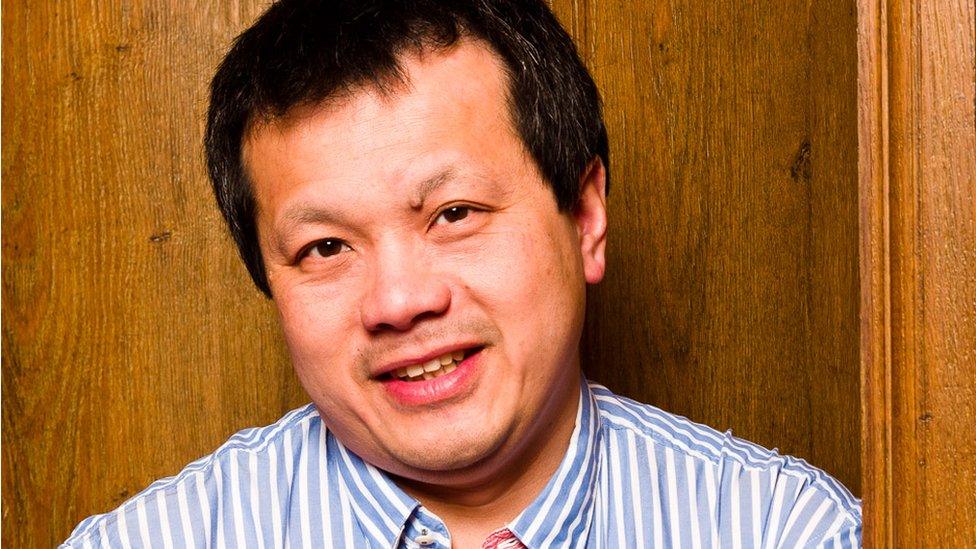'I turned my dad's erotic novel into a hit podcast'
- Published
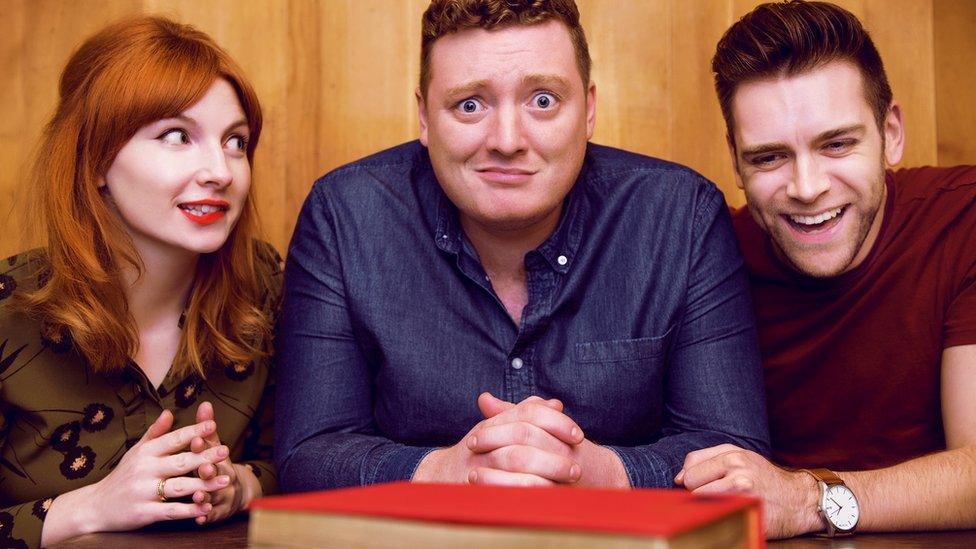
Jamie Morton (centre) and friends Alice Levine and James Cooper
When Jamie Morton started making his own podcast, he certainly picked an eyebrow-raising topic - reading out his dad's attempts at erotic fiction.
Jamie's father had sent him the first few chapters of the racy novel he'd been secretly writing.
"I naively assumed it would be some story of swashbuckling pirates or a spy thriller. It was only when I started reading it that I discovered he'd been penning porn," says Jamie, 29.
Bodice-ripping sentences he stumbled over included "the job interviewer had just asked her to remove her jacket and silk blouse" and "her black brassiere was working overtime".
Following the initial shock, Jamie decided to read his dad's adult literature to some friends down the pub. They immediately collapsed with laughter and piled in with their comments and critiques.
The evening was so much fun that it inspired London-based Jamie to launch a podcast called My Dad Wrote A Porno. Every week he and his friends, James Cooper and Alice Levine, discuss and analyse a different chapter of his father's unintentionally funny book, which is called Belinda Blinked.
Since its launch in September 2015 the podcast has been a surprise hit, surpassing 50 million downloads worldwide, and regularly dominating Apple's iTunes podcast chart.
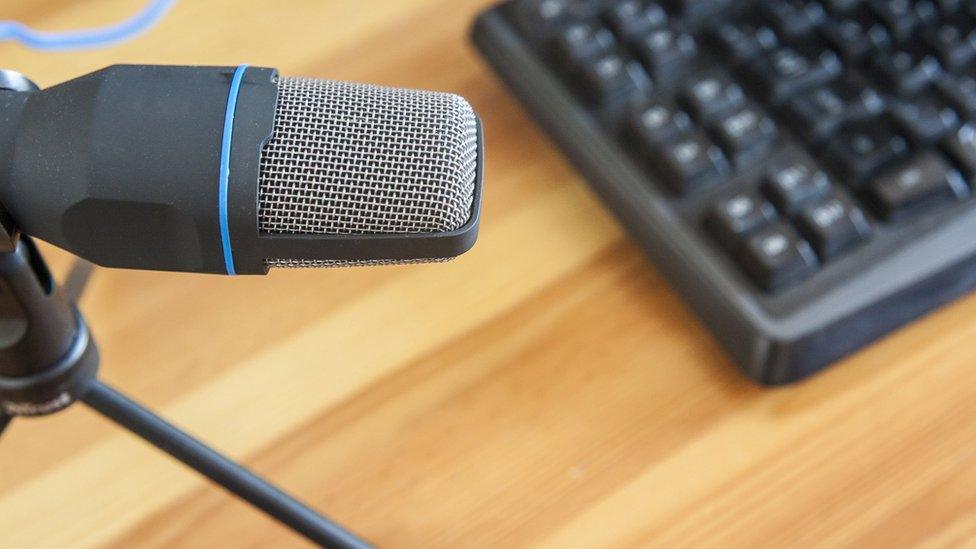
Almost a quarter of Americans are said to listen to podcasts, and 10% of people in the UK
Listening to podcasts - digital audio files - that you stream or download to your mobile phone or computer has shot up in recent years.
The US continues to lead the way, with almost a quarter of Americans over the age of 12 - about 67 million people - now listening to at least one podcast every month, according to the Podcast Consumer 2017 report, external by Edison Research. The 24% figure compares with just 9% in 2008.
Separate figures show, external that 10% of UK adults are now downloading podcasts, up from 6.5% in autumn 2015.
While for many people making their podcast is a happy hobby, for an increasing number - such as Jamie Morton - it can be a very lucrative business.
So how can podcast makers make money? With most podcasts being given away for free, the answer is advertising revenues, but if you aren't an expert on the advertising industry, securing adverts may seem like an impossible challenge.
Help is at hand from the growing number of podcast platforms that connect podcasters with advertisers. Podcast platforms that offer this service, including Swedish start-up firm Acast and the UK's AudioBoom.

Digital music players and the internet have made podcasts possible
My Dad Wrote A Porno uses Acast, and Jamie says: "Acast secures the [advertising] deals, and then we record specific sponsorship reads that we slot into the show."
What Jamie means by "reads" is that he or one of his fellow hosts will read out a message from the sponsor of the episode or series.
He adds that they then try to make the sponsor "relevant" to the show.
"It's a really great way of doing it because it makes them feel fully integrated into the podcast, and we're able to put our personal spin on them, and find editorially relevant ways of weaving sponsorship into the tone of our specific show."
While podcast expert Tom Webster, of research group Edison, agrees that the adverts work best when they "feel like part of the content", other commentators have questioned whether such an approach is being fair to the listeners.
These critics argue that there should always be a clear delineation between the content and the adverts, so that the listener knows exactly what is commercially paid for.

More stories from the BBC's Business Brain series looking at quirky business topics from around the world:
Would you carry something abroad for a stranger?
Nine-month stretch: The rise of prenatal exercise classes

In terms of how much money is now spent on podcast advertising, media firm ZenithOptimedia estimated last year that the 2016 figure for the US would be $35m (£27m). This is a tiny fraction of the $18bn spent on radio advertising in the US last year, but podcast advertising is growing steadily.
While Acast won't reveal exact figures for how much money its users make from advertising, it says that its "top podcasters can bring in tens of thousands of dollars a month from brands".
Acast's co-founder Karl Rosander adds that podcasters "can make a very good living if you have a popular show".
Meanwhile, Mr Webster says that to earn serious money, podcast creators need to be achieving more than 100,000 downloads a month.
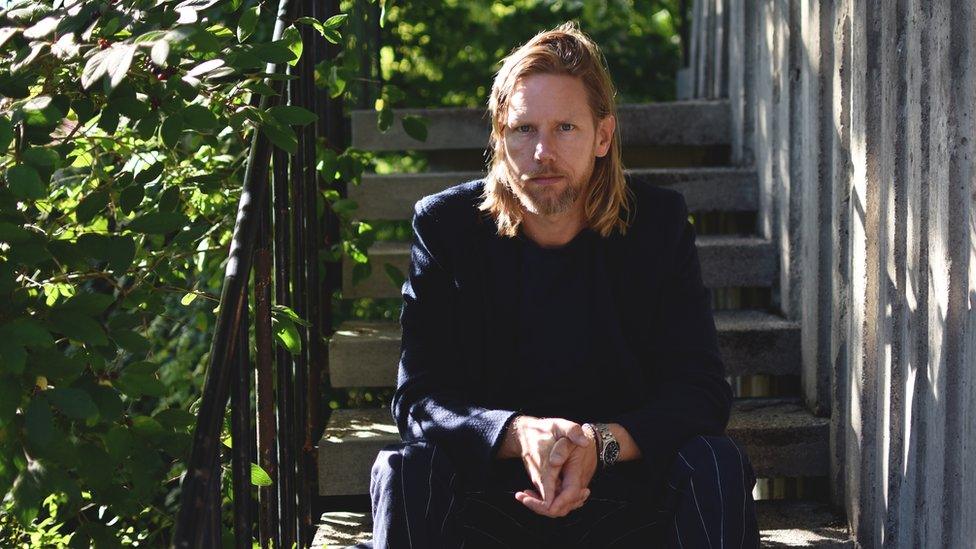
Kristoffer Triumf's podcast has led to other revenue streams
In addition to a slice of the advertising revenues, podcasters can also choose to put out "premium content", such as special edition episodes that people have to pay for.
Podcasting can also lead to other revenue streams.
Swedish podcaster Kristoffer Triumf, founder of weekly entertainment industry podcast Varvet, has been able to earn additional money from hosting live talk shows and has even released a spin-off board game.
Back at My Dad Wrote A Porno the team has started taking its show on tour.
Jamie says: "Live shows have been a really exciting thing to do, and we're taking our show up to the Edinburgh Fringe later this year, and also embarking on a tour of Australia and New Zealand.
"We sold out the Sydney Opera House in one day, and added an extra night due to the demand, which is incredibly exciting."
But while some podcasters sing the praises of the likes of Acast and AudioBoom, others deliberately avoid them.
London-based Imriel Morgan and Efe Jerome run the Shout Out Network, a podcast network dedicated to representing diversity. Its five podcasts include Millennials of Colour, which covers issues from mental health to poverty, and are available via its own website or Apple's Podcast app.
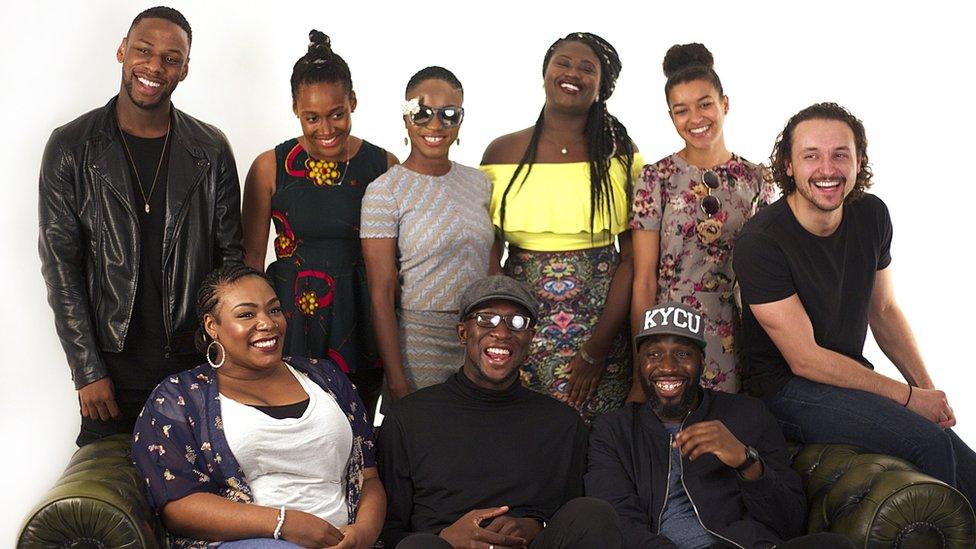
Shout Out Network has a number of podcasts, hosted by these presenters
Imriel says they prefer to work directly with advertisers so that they can have strict control over what adverts are connected to their podcasts, something she claims isn't possible via Acast or AudioBoom.
"We have had a few meetings with Acast and AudioBoom and have opted not to go with them," says Imriel.
"We think their method isn't suited to our audience. They monetise content and place ads next to your content - I don't want ads on the content that we haven't listened to before.
"For example, we are happy to advertise, say cars and health products, but [with those platforms] you don't know what that brand might be. We are completely against that. We have a lot of trust with our listeners."
AudioBoom agrees that trust is all-important - which is why the firm disagrees strongly that its podcasters have no control over adverts.
"We don't want a podcaster to promote a brand they don't truly support," says Ruth Fitzsimons, AudioBoom's senior vice president of international operations. "That's bad business for advertisers and it erodes the trust our podcast partners work so hard to build with their audiences."
AudioBoom's way of working is that new podcasters fill in an "advertising restrictions list" which outlines the genres and brands they are not willing to work with.
Says Ms Fitzsimons: "This is particularly important for live reads which are endorsements made by hosts and producers based on their experience with a product or service."
AudioBoom's in-house research certainly underlines why advertisers are interested in this medium.
A survey of 2,646 AudioBoom podcast listeners completed in March found that 40% had bought, tried or researched a product mentioned by a podcaster.
For anyone wishing to start a podcast, Jamie Morton says it is crucial to find an original angle if you want it to be a success.
"It's such a saturated marketplace and because anyone can make a podcast there's a lot of competition," he says.
He adds that making money should definitely not be your prime concern.
"I think with anything creative, if you set out making something to earn money from it it's probably not going to work out that well."

Follow Business Brain series editor Will Smale on Twitter @WillSmale1, external

Update 1 June 2017: This report, originally published on 25 May, has been updated to include more information on AudioBoom's operation.
- Published11 May 2017

- Published4 May 2017
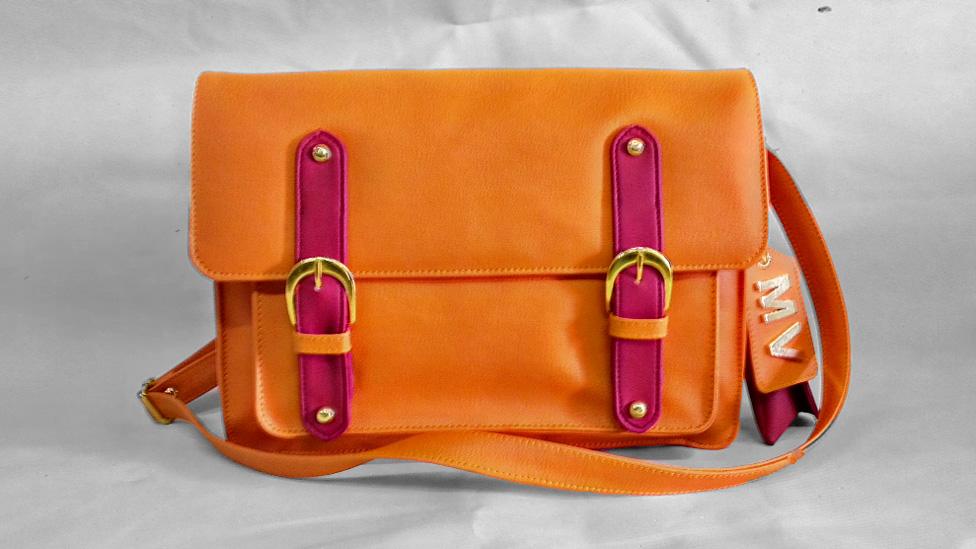
- Published20 April 2017
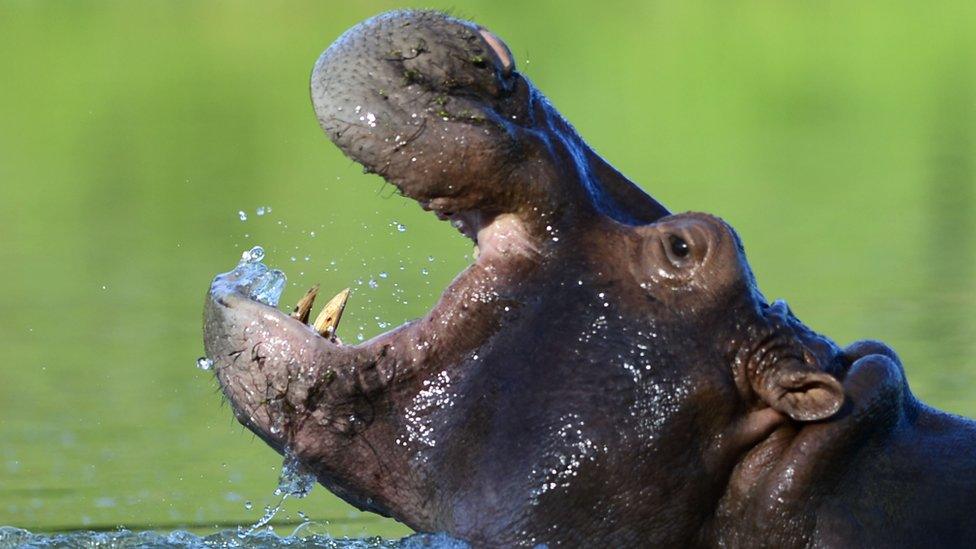
- Published13 April 2017
